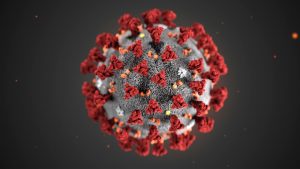What is a Coronavirus?
Coronaviruses are a large family of viruses that can cause illnesses ranging from the common cold to more serious respiratory infections like bronchitis, pneumonia or severe acute respiratory syndrome (SARS). Coronaviruses are spread mainly from person to person through close contact, for example, in a household, workplace or health care centre.
Some human coronaviruses spread easily between people, while others do not.
Your risk of severe disease may be higher if you have a weakened immune system. This may be the case for:
- older people
- people with chronic disease (for example, diabetes, cancer, heart, renal or chronic lung disease)
Symptoms of COVID-19 and its variants range from mild — like the flu and other common respiratory infections — to severe. If you feel sick, it’s important that you stay home and talk with a primary care provider or doctor if necessary.
If you have the symptoms of COVID-19 listed below, assume that you may have the virus and may be contagious.
- Any one or more of:
- fever or chills
- cough
- shortness of breath
- decreased or loss of taste or smell
- Any two or more of:
- runny nose or nasal congestion
- headache
- extreme fatigue
- sore throat
- muscle aches or joint pain
- gastrointestinal symptoms (such as vomiting or diarrhea)
COVID-19 is the illness caused by the Sars-Covid 2 virus. The first presumptive case of this infection in Ontario was identified on January 25, 2020.
